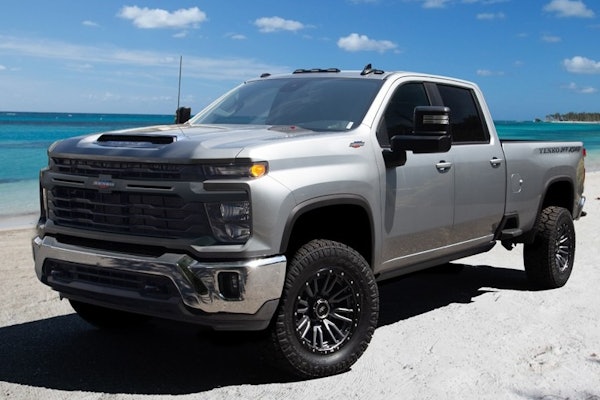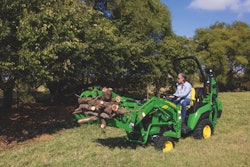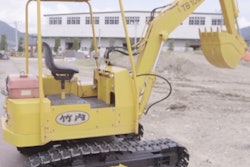
Even though Women’s History Month is coming to a close, let’s not forget that the powerhouse women who make up the green industry can be celebrated every day.
Every career comes with its own set of challenges, but with the green industry still being a male-dominated field, many women say it’s hard to generate interest for this line of work among other females. 
Total Landscape Care reached out to women in the green industry to hear their thoughts on where they see the industry going, how it’s progressed since they first started and how we can become more welcoming to women in the future.
Hard work pays off
Having been part of the green industry for over 30 years, Loriena Harrington, president of Beautiful Blooms Landscape & Design, LLC in Menomonee Falls, Wisconsin, says she did get a bit of grief from her co-workers when she first started out. But that never deterred her from stepping up to challenges and taking chances.
“Since I was 12 years old, I’ve worked in a male-dominated industry,” she says. “I’m well respected within my network of peers. I’m not shy about getting involved with various organizations or reaching out and networking with my peers. And I think that outgoing nature and ability to have high level conversations and hold myself with respect and professionalism earns respect from others.”
Even as a young woman entering the industry, Harrington says she could tell it was a “good ol’ boys kind of club,” and while she says she’s grown used to it, she says new women coming into the field might see it as a bit of a shock.
Even though she came in young, Harrington says she dedicated time and energy to learning as much about the field as she could to advance and make a name for herself amongst her peers.
“Once I was able to prove myself and prove that I was a hard worker, then I earned respect,” she says. “I gained respect through my knowledge and developed my professionalism through being mentored by others.”
Having started off in the golf course industry, Harrington says she was the only female on staff most times, and she never had the opportunity to become a superintendent. During her time working at the golf course, Harrington recalls that there was only one female golf course superintendent in the whole state of Minnesota.
Jennifer Lemcke, CEO at Weed Man, has been part of the green industry for 28 years and also grew up knowing the ins and outs of how this field operated.
When she first started in the industry, Lemcke says the field wasn’t as well-known and as advanced as it is today, but through the years, more people have come to see it as a money-making opportunity.
“I wouldn’t say that the sophistication of the industry was nonexistent when I first started out, but technology has helped get the word out more,” she says. “I would definitely say that the industry has evolved and become stronger and more professional since I first started.”
Throughout her time with WeedMan, Lemcke says there were many times when she would be the only woman in the room, but in all that time, she never once felt disrespected.
However, she says she did realize that if she wanted to succeed, she needed to outwork everyone else at the table. She says she always knew she might not be the smartest person in the room, but she was confident that she could outwork everyone.
“I didn’t demand respect; I earned respect,” she says. “I think that’s a big mistake if people think because of who they are, they can walk into a room and should automatically deserve respect. I think that’s wrong, and it’s a big mistake. I think in life you have to earn it and that’s what my dad always said to me.”
Along with working hard, Lemcke says you need to work to be an active listener, as this will help you better hear and respect people. Lemcke says that regardless of who she interacts with, her goal is to show the person respect. Even if she doesn’t agree with someone’s opinion, she says she will always be respectful of it.
Miles to go before we sleep
While it’s true the green industry has become more welcoming and inclusive to women through the years, Harrington and Lemcke agree that the work is not done yet.
Harrington notes that the conversation of accommodating and including women has become much more prevalent in the industry nowadays, and she notes that there have been small strides made with equipment ergonomics, inclusive language, uniforms and company policies regarding women.
However, there’s still a ways to go before things are ideal.
To help offer solutions, Harrington says manufacturers need to be more mindful about making tools that are easier for women to handle, especially when considering the height of the individual operating the tool.
She also adds that just because a piece of equipment is made for women, that doesn’t call for a pink paint job.
“For God’s sake, don’t make them pink,” she says. “We don’t have to get that crazy. Just because you make something for a woman, that doesn’t mean it needs to be pink.”
Lemcke and Harrington agree that one of the major ways to enact change for women in this industry is to make sure men are still part of the conversation.
Lemcke says it was important to her when she joined the National Association of Landscape Professionals’ (NALP) Women in Landscape Network that they did not form a “man-bashing” group but instead opened it up as a place where men could see the questions and concerns from women in the industry.
“Man bashing is completely counterintuitive because if we’re going to have change happen, we need men at the table,” she says. “They need to understand, they need to have input, we need to understand what has stopped them from having women in their companies and we need to know what things they are afraid of. If we don’t answer that or get down to the root of that, we’re not going to be successful. We have to continue to be inclusive of this effort for it to work.”
Check back tomorrow for part 2 of this series, where we’ll take a deeper dive into what green industry companies can do to make this field and their workplaces more appealing to women.











